Left Bank exec producer Rob Bullock on series’ six-year journey and ushering in the ‘mainstream’ detective drama
When Dept. Q launched on Netflix UK today (29 May), it brought to a close a six-year journey for Rob Bullock.
Left Bank Pictures’ nine-part series stars Matthew Goode as formerly top-rated, albeit curmudgeonly detective Carl Morck, who is in therapy, battling his colleagues and guilt following an attack at a crime scene, which left his partner Hardy (Jamie Sives) paralysed and another policeman dead.
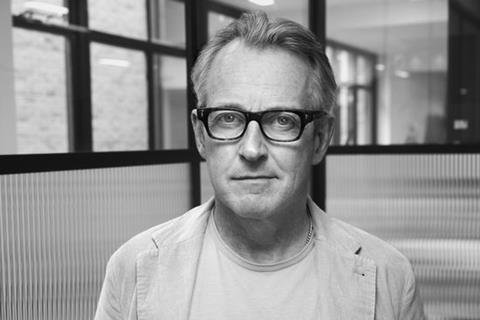
When he’s assigned to a new cold case unit, Morck cobbles together a team of misfits to delve into Edinburgh’s unsolved crimes.
The streaming giant greenlit the series in 2023 as part of content chief Anne Mensah’s drive to create a Netflix UK identity beyond Bridgerton and, ironically, Left Bank’s own series, The Crown.
Four years previous, executive producer Bullock had read Mercy, the first in Danish author Jussi Adler-Olsen’s Department Q novel series, and it had resonated personally: Bullock also has a friend who is tetraplegic. He had been struck, he tells Broadcast, by the frank conversations Morck and Hardy have, recalling the “very specific no bullshit” rule he and his friend have when talking to each other.
Keen to see if the rights were available, which they were, Bullock discovered there existed a “gentleman’s agreement” between Adler-Olsen and US screenwriter and director Scott Frank, that any English-language adaptation would need to involve The Queen’s Gambit and Godless creative.
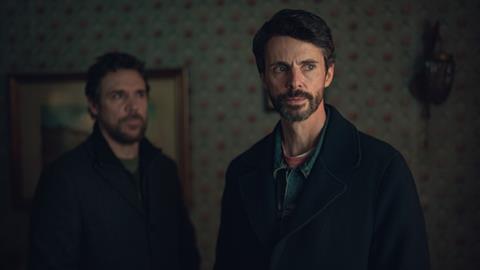
While Frank and Bullock were in accord over the potential of a series, Frank was tied up with The Queen’s Gambit for Netflix and didn’t have the bandwidth to write and direct the series – which was Bullock’s desire.
However, with Covid giving Bullock time to develops scripts with Black Mirror alumna Chandni Lakhani, alongside other writers Colette Kane (Vera, Temple) and Stephen Greenhorn (Marchlands, Dalgliesh), the fates conspired to clear Frank’s decks and he wrote or co-wrote all episodes and directed six.
“I told him in 2019 I am going to manifest very, very hard that you can do more than just be a non-writing exec producer. I got as near as damn to what I was dreaming all those years ago,” Bullock says.
With Lakhani and Frank on board, Bullock says the project sparked a “bit of a bidding war” (but doesn’t name the other party) before moving ahead with Netflix.
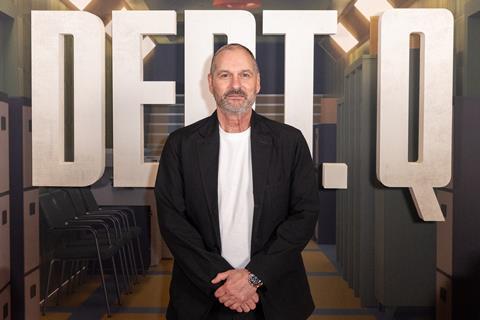
Dept. Q is a departure, of sorts, for the streaming giant as it is a conventional serialised detective drama, commissioned with a view to return. Many of Netflix UK’s recent high-profile scripted series – Toxic Town, Adolescence, One Day, Baby Reindeer and even the Harlen Coben thrillers – are built as one-and-done events.
The series that Netflix is bringing back such as Black Doves and Supacell, are high-concept pieces, unlike the detective genre, which is a staple of international drama. Global chief content officer Bela Bajaria has signalled the streamer’s intent to make broad-audience popular shows, while Mensah has previously warned against the “monoculture”, urging suppliers to think broadly and not second-guess what Netflix wants.
“I remember Netflix saying, when we were first pitching it to them, no-one pitches us detective shows, and we would love to make a detective show,” Bullock recalls. “Which was a very good start to the pitch. It was a very simple proposition that we were bringing them.
“Department Q is a conscious shift into that more mainstream, big-audience territory – but done in an elevated way.”
He says Left Bank has built its legacy on these types of shows, presenting “commercial stories with real high-quality execution”. Bajaria has emphasised the Netflix sweet spot is premium and commercial at the same time, which she introduced as a “gourmet cheeseburger” during an interview with the New Yorker – although the expression was coined by her colleague Jinny Howe.
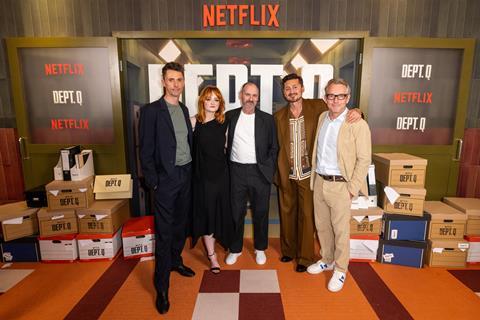
So, is Dept. Q a gourmet cheeseburger?
“You’re never going to get me on record saying that,” Bullock says. “But I understand exactly what she means by it: stories that are going to be able to travel all round the world, have real global appeal, but will – at the same time – have an excellence of execution and artistry in the way they’re done that set them apart.
“I love shows like True Detective and Slow Horses, these genre shows built to return, but at the same time have a level of artistry in the way they’re executed. They don’t compromise on that.”
Frank, who for Bullock is the “most talented writer and director I’ve ever worked with”, brings that level to the series. Having crafted The Queen’s Gambit and western Godless for Netflix and, more recently, AMC’s neo noir detective series Monsieur Spade, Frank has stated he is a fan of classic British detective procedurals such as Cracker and Prime Suspect.
Bullock says Dept. Q draws acutely from this “British tradition” of the genre, to which “audiences come with expectations of how the story is going to work”, but homes in on the premium aspects he is able to “smuggle in” such as “humour and elevated writing”.
“That’s Scott’s stock in trade. He has an absolute pure focus on character and tone. He loves dark stories, but he tells them with great big heart and warmth and humour, that is his genius.”
Bullock also says Frank’s involvement confirms to how strong the UK scripted landscape is currently, a point Mensah made when urging the landscape not to conflate funding issues with creativity at the Broadcast Summit in April.
“Look at Adolescence and the way that broke all round the world, then at the same time consider Mr Bates vs The Post Office on ITV. It feels like great storytelling has never been in ruder health,” he says.
“It’s testament to our industry that we can attract someone like Scott Frank to come and work here. He could have a very lucrative time just staying in Hollywood, but he specifically wanted to come and work in the UK with British crews. And he had a tremendous time doing it.”
- Dept. Q launches on Netflix on 29 May







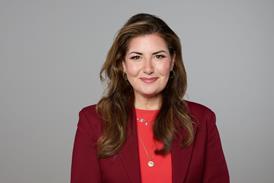
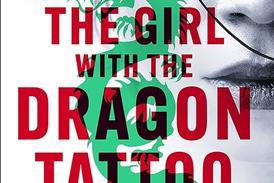

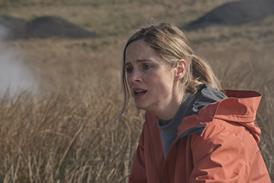

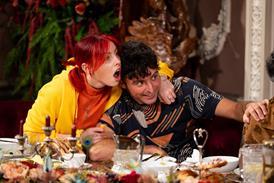







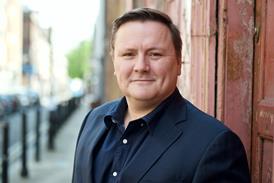


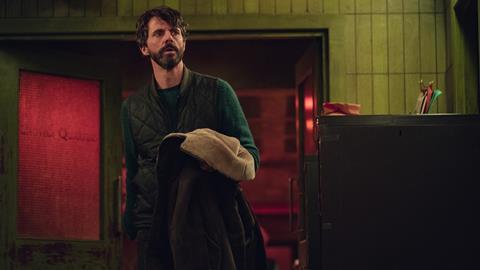






No comments yet